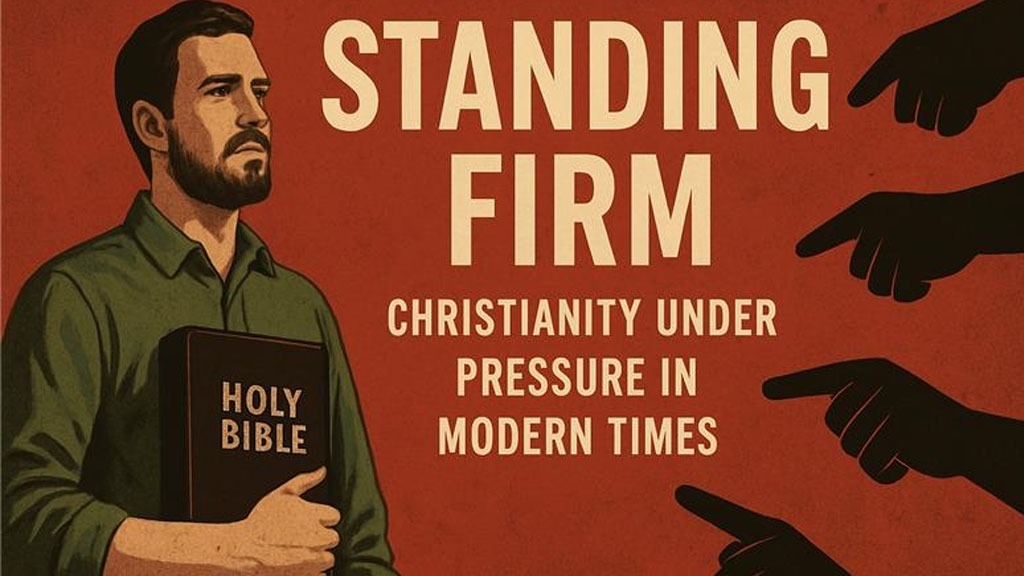In an era where religious freedom faces mounting challenges, Christians worldwide find themselves navigating increasingly hostile waters. From subtle workplace discrimination to outright persecution, followers of Christ encounter growing resistance to their faith. As Jesus forewarned, "If the world hates you, keep in mind that it hated me first" (John 15:18).
The pressure comes in many forms. In corporate settings, expressing Christian beliefs about marriage, gender, or morality can lead to professional consequences. On college campuses, Christian student groups face derecognition for maintaining biblical leadership standards. Social media platforms often flag biblical content as "controversial," while traditional Christian viewpoints are increasingly labeled as intolerant or hateful.
In education, we see curriculum changes that conflict with Christian worldviews, putting Christian parents and students in difficult positions. Biblical perspectives are frequently dismissed as outdated or irrelevant, while competing worldviews are presented as progressive and enlightened. As Paul wrote to Timothy, "For the time will come when people will not put up with sound doctrine. Instead, to suit their own desires, they will gather around them a great number of teachers to say what their itching ears want to hear" (2 Timothy 4:3).
The situation is far more severe in many parts of the world. Christians face imprisonment, torture, and death for their faith in numerous countries. Church buildings are destroyed, Bibles are banned, and believers must worship in secret. These brothers and sisters embody Peter's words: "Dear friends, do not be surprised at the fiery ordeal that has come on you to test you, as though something strange were happening to you" (1 Peter 4:12).
However, this opposition shouldn't surprise us. Scripture repeatedly warns that following Christ will involve suffering and rejection. The real question is how we respond to these challenges. Do we retreat into isolated Christian bubbles? Do we compromise our beliefs to avoid conflict? Or do we stand firm in our faith while engaging with grace and truth?
The biblical model suggests the latter approach. Jesus didn't call us to wage cultural wars but to be salt and light in a decaying and dark world. This means:
-
Maintaining biblical convictions while showing Christ's love to opponents
-
Speaking truth with grace rather than responding with hostility
-
Supporting fellow believers facing discrimination or persecution
-
Working through legal and democratic channels to protect religious freedom
-
Preparing our children to stand firm in their faith while loving their neighbors
We must remember that our struggle isn't ultimately against human opponents. As Paul reminds us, "For our struggle is not against flesh and blood, but against the rulers, against the authorities, against the powers of this dark world and against the spiritual forces of evil in the heavenly realms" (Ephesians 6:12).
This perspective should shape our response. While we must stand firm for religious freedom and oppose genuine discrimination, we should do so without adopting a siege mentality or viewing non-Christians as enemies. Our calling is to love our persecutors while remaining faithful to biblical truth.
Christians can take practical steps to navigate these challenges:
-
Build strong faith communities that provide mutual support
-
Know our legal rights and exercise them appropriately
-
Document instances of discrimination or persecution
-
Support organizations defending religious freedom
-
Pray for those in authority and those who oppose us
-
Maintain peaceful and productive dialogue with those who disagree
Remember, Christianity has faced opposition throughout history, yet has continually grown stronger through persecution. The early church didn't triumph through political power but through faithful witness amid suffering. As Tertullian observed, "The blood of martyrs is the seed of the Church."
Today's challenges call for wisdom, courage, and love. We must stand firm in truth while extending grace, defend our rights while loving our opponents, and remember that our ultimate victory is secure in Christ. As Paul assured the Romans, "If God is for us, who can be against us?" (Romans 8:31).
The pressure on Christian faith may increase, but this could lead to a more robust and authentic Christianity. As superficial faith falls away, genuine believers have opportunities to demonstrate the transformative power of the gospel through lives of courage, integrity, and love – even toward those who oppose us.




Comments